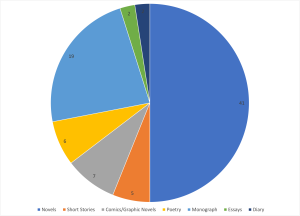I’ll start things off this week with some music for you to listen to while you read the rest:
EP: Strings of Gold by I Will, I Swear
I don’t know anything at all about this band, and I continually mix up the name of the band with the name of the record (doesn’t “Strings of Gold” sound more like a band than “I Will, I Swear”?) Anyway, it’s a lovely, sad little record built around piano and electronics and cool, sad female vocals.
Article: “Anna Jarvis Was Sorry She Ever Invented Mother’s Day” by Joel Oliphint
The title of this piece is actually a bit misleading; it’s not at all clear from Oliphint’s description that Anna Jarvis, who led the campaign for a national holiday honoring mothers and then spent the rest of her life battling everyone from the greeting card industry to Eleanor Roosevelt to keep it “pure” and consistent with her vision, actually regretted creating the day in the first place. It would be better, perhaps, to say that she got more than she bargained for when she began the campaign, or that success didn’t mean what she expected it would. In any case, it’s interesting to see how personal, sentimental motives get reshaped by the policy process.
Article: “Why Can’t America Have Great Trains?” by Simon van Zuylen Wood
The answer, as you would probably have guessed, is that our policymakers won’t provide the support that would be needed to build a better train system; but they also won’t quite abandon the one we have, leaving it to drift along in mediocrity. The article is really about why that is, though, and it’s a good example not only of how ideology undermines good policy, but also of federalism and the inevitable crossed wires of party politics, leading to strong support for more spending on trains in Mississippi— one of the most solidly Republican states— and Republicans in Washington who want to cancel funding for Amtrak altogether.
Article: “Enemy at the Grates” by Josh Dzieza
Apparently Alberta is “the largest inhabited rat-free zone” in the world, largely because policymakers were proactive and took steps to limit the growth of rat populations before they had really arrived. That success is basically unique, and for many large urban areas, like New York, the focus is, of necessity, on controlling rat populations rather than eliminating them. At the same time, scientists are government officials are carpet-bombing small islands with rat poison, in the hopes of allowing native species decimated by rats to return; in many cases, this has worked remarkably well. This is a story about how human beings change the environment by accident, and then try to change it back on purpose; as such, I can’t help but feel that further tragedy will inevitably follow. Having introduced Norway Rats to much of the world, though, we seem doomed to a continual battle with a species that may be better adapted to the world we’ve made than we are.


